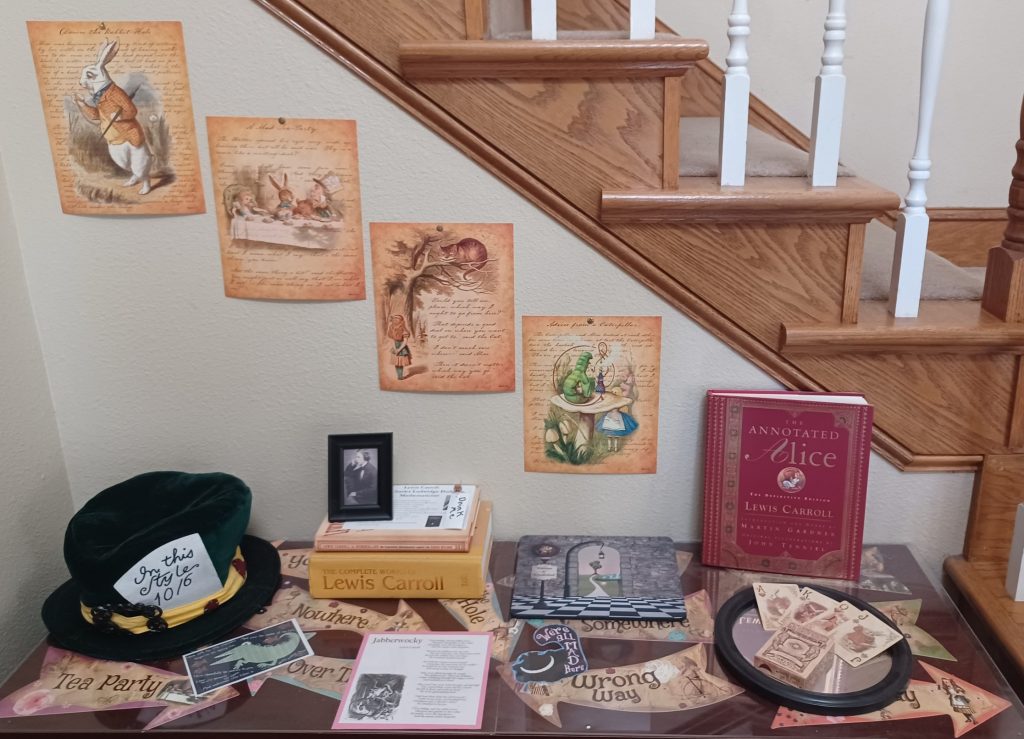
Like many children, I was exposed to Alice and Wonderland and many other fantastical creations of Louis Carroll via book and screen. I found the stories palatable but not among my favorites. It was not until I was a bit older that I began to better appreciate the cleverness behind much of the writing
During my junior year of high school I encountered Gödel, Escher, Bach: an Eternal Golden Braid by Douglas R. Hofstadter. The book interweaves math, art, and music in a study of cognition and, to my delight, alternating chapters were written in a Louis Carroll-ish style using curious creatures engaging in odd activities and conversation to depict various theory. Gödel, Escher, Bach influenced me in a variety of ways, but germane to this post was it made me reevaluate actual Louis Carroll texts.
The next year I wrote my Senior Paper about the logic in the writings of Lewis Carroll. I learned that “Lewis Carroll” was actually a pen name for logician and mathematician Charles Lutwidge Dodgson. Within his various “children’s” stories are representations of and allusions to many different logical concepts and I excitedly delved into different occurrences. The story didn’t matter as much as the concepts behind the story.
Years after that, while studying literature as both an undergrad and graduate student, I revisited some Lewis Carroll texts. This time I was focused on his word usage and structures. Sometimes in invented new words. Sometimes he deliberately misused words. Sometimes he embedded different poetic structures into texts. I generally refrain from diving too deeply into this sort of realm, but nevertheless found that just beneath the layer of silliness was a significant depth.
Originally I thought Lewis Carroll to be a writer for children. Later I thought Charles Dodgson to be representing math and logic. After that I found him to be careful crafter of clever and cryptic composition. Sometimes I wonder if I infer more that was intended by by the author, but perhaps that doesn’t really matter. In the words of Lewis/Charles: “Words mean more than we mean to express when we use them: so a whole book ought to mean a great deal more than the writer meant.”